Prof Stoyan Smoukov
News
March 2025 | ||
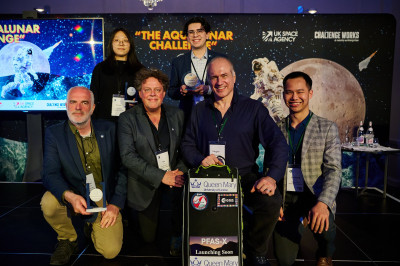 Queen Mary-led Team Triumphs in Aqualunar Challenge with Innovative Water Purification Solution28 March 2025We are proud to announce that a Queen Mary-led team has secured the 2nd Runner-Up Prize in the AquaLunar Challenge - a £1.2 million international competition dedicated to advancing human habitation in space, by developing innovative methods to purify water buried beneath the Moon’s surface. Queen Mary's … [more] | ||
April 2023 | ||
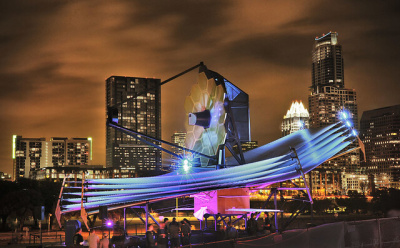 Engineering the James Webb Space Telescope (JWST) - the largest optical telescope in space17 April 2023In a seminar at Queen Mary, NASA’s Dr Raymond Ohl explained what makes the JWST’s architecture so unique. Dr Ohl has worked on the James Webb Space Telescope (JWST) project at the Goddard Space Flight Center in various roles for about 20 years. He was invited by … [more] | ||
January 2022 | ||
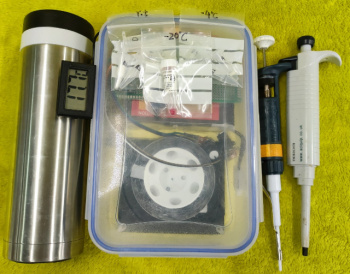 Scientists develop Covid-19 testing lab in a backpack26 January 2022Researchers have created a simple Covid-19 testing lab that fits into a backpack providing a cheap and effective solution for low income or remote areas. In a new study, published in PLOS ONE and the Evening Standard, scientists from Queen Mary University of London show that their lab-in-a-backpack approach … [more] | ||
July 2021 | ||
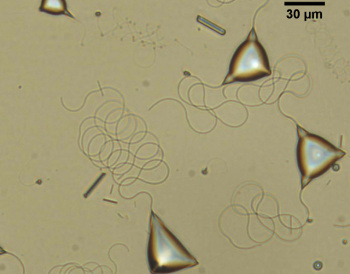 Scientists create rechargeable swimming microrobots using oil and water15 July 2021A new study, published today in Nature Physics, has shown that it is possible to create tiny, self-powered swimming robots from three simple ingredients. By combining oil drops with water containing a detergent-like substance, the scientists found they could produce artificial swimmers that are able to swim independently and … [more] | ||
January 2021 | ||
 Fan Li Passes his PhD Viva on "Non-equilibrium and hybrid multiscale modelling of molecular systems"19 January 2021Many congratulations to Fan Li for successfully passing his PhD Viva with minor corrections on the dissertation “Non-equilibrium and hybrid multiscale modelling of molecular systems”. The Viva was held remotely by Teams. Many problems in science and engineering comprise multiple scales in space and time. A particular example … [more] | ||
August 2020 | ||
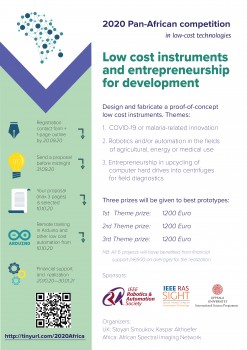 Queen Mary researchers launch new competition on low-cost innovation for African scientists and entrepreneurs21 August 2020Researchers from the School of Engineering and Materials Science at Queen Mary University of London have launched a new competition in low-cost technologies that aims to identify and develop the next generation of young scientists, leaders, and entrepreneurs in Africa. This new competition, which is open to all countries in … [more] | ||
March 2019 | ||
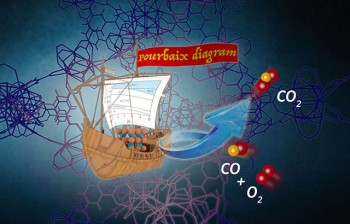 Scientists squeeze catalysts inside host materials like a ship into a bottle22 March 2019Scientists at Queen Mary University of London have found a way to place catalysts inside the tiniest pores of different host materials, a bit like when model ships are unfolded inside a bottle. When materials are confined like this on such a small scale, and without breaking the host, they … [more] | ||
August 2018 | ||
 Scientists design material that can store energy like an eagle’s grip9 August 2018What do a flea and an eagle have in common? They can store energy in their feet without having to continuously contract their muscles to then jump high or hold on to prey. Now scientists at Queen Mary University of London and University of Cambridge have created materials that can … [more] | ||
May 2018 | ||
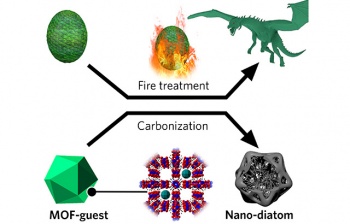 Scientists discover how a pinch of salt can improve battery performance14 May 2018Researchers at Queen Mary University of London, University of Cambridge and Max Planck Institute for Solid State Research have discovered how a pinch of salt can be used to drastically improve the performance of batteries. They found that adding salt to the inside of a supermolecular sponge and then baking … [more] | ||
August 2017 | ||
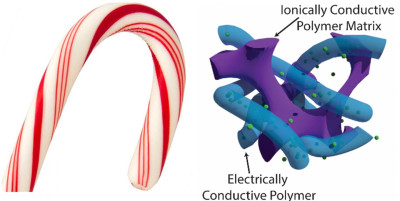 Candy cane supercapacitor could enable fast charging of mobile phones16 August 2017Supercapacitors promise recharging of phones and other devices in seconds and minutes as opposed to hours for batteries. But current technologies are not usually flexible, have insufficient capacities, and for many their performance quickly degrades with charging cycles. Researchers at Queen Mary University of London (QMUL) and the University of … [more] | ||

